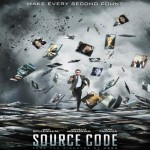 As mentioned in last quarter’s column, there have been a lot of “life-as-illusion” themed movies coming out lately. While I suspect that the success of Avatar and Lost are partly responsible for this trend, I think people’s fascination with 2012, drastic world changes, and a surge in our search for meaning are also fueling the recent string of films about alternate realities and simulated worlds. When airplanes are crashing into buildings, cities are submerged underwater, the Middle East is revolting, and the world economy is collapsing, real life almost seems more fantastical than our dreams. Jon Stewart summed it up perfectly at the 2008 Academy Awards: “Normally, when you see a black man or a woman president, an asteroid is about to hit the Statue of Liberty.” Yes, we are now officially living in the future, and we all know what kind of stuff happens in the future—exactly the kind of stuff that’s happening right now. But at least, thanks to Hollywood, we’ve been warned. And Hollywood’s heads up may even go much deeper than prophesies of events to come. They may help explain the reality we all find ourselves in.
As mentioned in last quarter’s column, there have been a lot of “life-as-illusion” themed movies coming out lately. While I suspect that the success of Avatar and Lost are partly responsible for this trend, I think people’s fascination with 2012, drastic world changes, and a surge in our search for meaning are also fueling the recent string of films about alternate realities and simulated worlds. When airplanes are crashing into buildings, cities are submerged underwater, the Middle East is revolting, and the world economy is collapsing, real life almost seems more fantastical than our dreams. Jon Stewart summed it up perfectly at the 2008 Academy Awards: “Normally, when you see a black man or a woman president, an asteroid is about to hit the Statue of Liberty.” Yes, we are now officially living in the future, and we all know what kind of stuff happens in the future—exactly the kind of stuff that’s happening right now. But at least, thanks to Hollywood, we’ve been warned. And Hollywood’s heads up may even go much deeper than prophesies of events to come. They may help explain the reality we all find ourselves in.
 There have been a lot of “life-as-illusion” themed movies coming out lately. We’ve had Avatar, Inception, and TRON: Legacy, and this month alone there’s The Adjustment Bureau, Limitless, Sucker Punch and Source Code. All these films share themes of alternate realities, questions about what is reality, and insight into powers that might be manipulating the reality we live in. While I hope to discuss the most recent batch of these films in an upcoming column, for now I’d like to bring up one that slipped past the radar of many moviegoers. This film actually gave me goose bumps when it revealed an angle that I’ve only recently adopted, and have never before seen in any other movie. That film is Disney’s Tangled.
There have been a lot of “life-as-illusion” themed movies coming out lately. We’ve had Avatar, Inception, and TRON: Legacy, and this month alone there’s The Adjustment Bureau, Limitless, Sucker Punch and Source Code. All these films share themes of alternate realities, questions about what is reality, and insight into powers that might be manipulating the reality we live in. While I hope to discuss the most recent batch of these films in an upcoming column, for now I’d like to bring up one that slipped past the radar of many moviegoers. This film actually gave me goose bumps when it revealed an angle that I’ve only recently adopted, and have never before seen in any other movie. That film is Disney’s Tangled.
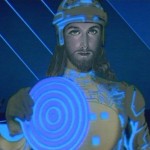 In anticipation of TRON: Legacy, I recently re-watched a bunch of simulation-world films including The Thirteenth Floor, eXistenZ, and the original TRON, which I hadn’t seen in over twenty-five years. While I remember being somewhat confused watching the futuristic Disney film as a kid, seeing it again with new eyes, I was amazed at how clearly it expressed the “life as illusion” theme I’ve been so fascinated by as an adult. In the original movie, Jeff Bridges is considered a “user.” While Bridges often plays users in his films, in this case, it refers to a computer user who manipulates the scenarios of a digital world that is very similar to our own. In the original film, users are considered mythical, messianic figures who can help free the programs from the game they find themselves in. This got me thinking.
In anticipation of TRON: Legacy, I recently re-watched a bunch of simulation-world films including The Thirteenth Floor, eXistenZ, and the original TRON, which I hadn’t seen in over twenty-five years. While I remember being somewhat confused watching the futuristic Disney film as a kid, seeing it again with new eyes, I was amazed at how clearly it expressed the “life as illusion” theme I’ve been so fascinated by as an adult. In the original movie, Jeff Bridges is considered a “user.” While Bridges often plays users in his films, in this case, it refers to a computer user who manipulates the scenarios of a digital world that is very similar to our own. In the original film, users are considered mythical, messianic figures who can help free the programs from the game they find themselves in. This got me thinking.
 In “Across the Sea,” Lost finally gives us the origins story for Jacob and the Man In Black. The episode was pure, 100% mythology. Those who watched the episode based on the surface story alone were probably disappointed. Let’s face it, taken literally, myths are silly: talking snakes, little boys defeating giants, jealous gods, immaculate conceptions, mortals with superpowers, a sword stuck in a stone, the Force, Never Never Land, Wonderland, Oz, the Matrix, the Island. On the surface, all myths seem like children’s stories. It’s only when we dig deeper that we find the truth worthy of a wise old soul—a soul that knows where it really came from.
In “Across the Sea,” Lost finally gives us the origins story for Jacob and the Man In Black. The episode was pure, 100% mythology. Those who watched the episode based on the surface story alone were probably disappointed. Let’s face it, taken literally, myths are silly: talking snakes, little boys defeating giants, jealous gods, immaculate conceptions, mortals with superpowers, a sword stuck in a stone, the Force, Never Never Land, Wonderland, Oz, the Matrix, the Island. On the surface, all myths seem like children’s stories. It’s only when we dig deeper that we find the truth worthy of a wise old soul—a soul that knows where it really came from.
 I just watched what is quite possibly the most brilliant and hysterically funny movie review I’ve ever seen. This masterpiece critique was created by Mike of Red Letter Media and consists of seven parts that can all be viewed on YouTube. I highly recommend everyone viewing at least the first two parts of his videos, but it will not be necessary to understand what I’m about to say. His analysis brought to the forefront something that I’ve pushed down deep into my psyche for over ten years and am only now ready to release: The Phantom Menace is not only the biggest disappointment in movie history, it is also very likely completely responsible for screwing up our world’s history. Yes, I’m completely serious. Before I begin proving my point, let me begin with some facts that will be a little easier to swallow.
I just watched what is quite possibly the most brilliant and hysterically funny movie review I’ve ever seen. This masterpiece critique was created by Mike of Red Letter Media and consists of seven parts that can all be viewed on YouTube. I highly recommend everyone viewing at least the first two parts of his videos, but it will not be necessary to understand what I’m about to say. His analysis brought to the forefront something that I’ve pushed down deep into my psyche for over ten years and am only now ready to release: The Phantom Menace is not only the biggest disappointment in movie history, it is also very likely completely responsible for screwing up our world’s history. Yes, I’m completely serious. Before I begin proving my point, let me begin with some facts that will be a little easier to swallow.
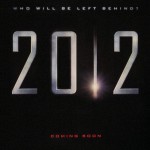 It was inevitable that this day would come. With the growing knowledge about the Mayan calendar end date of December 21, 2012, it was just a matter of time before Hollywood seized the opportunity to show its version of what the end date could mean. Since worldwide spiritual enlightenment, a slow transition from a patriarchal to matriarchal society, or nearly imperceptible earth-changes are admittedly not the stuff of blockbusters, Hollywood logically opted for a disaster flick. And not just any disaster flick, but a disaster flicks’ greatest hits.
It was inevitable that this day would come. With the growing knowledge about the Mayan calendar end date of December 21, 2012, it was just a matter of time before Hollywood seized the opportunity to show its version of what the end date could mean. Since worldwide spiritual enlightenment, a slow transition from a patriarchal to matriarchal society, or nearly imperceptible earth-changes are admittedly not the stuff of blockbusters, Hollywood logically opted for a disaster flick. And not just any disaster flick, but a disaster flicks’ greatest hits.
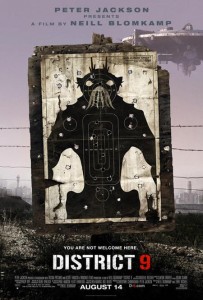 Nobody deserves to suffer. But perhaps we could all use some challenging times to help us grow so we might reach the next level. Maybe the universe is just breaking us down so we can be mended, nudging us towards a more united world. Perhaps this is all preparing us for whatever is to come in 2012 or beyond—the challenges that we may not be ready for now, but after several more beatings will be tough enough to handle. Let’s face it; we’ve become soft, spoiled, greedy, selfish, and lazy. We are just like the pompous Roman rulers before the fall of their empire or the snooty noble class before the French Revolution. In effect, we have become the bad guys.
Nobody deserves to suffer. But perhaps we could all use some challenging times to help us grow so we might reach the next level. Maybe the universe is just breaking us down so we can be mended, nudging us towards a more united world. Perhaps this is all preparing us for whatever is to come in 2012 or beyond—the challenges that we may not be ready for now, but after several more beatings will be tough enough to handle. Let’s face it; we’ve become soft, spoiled, greedy, selfish, and lazy. We are just like the pompous Roman rulers before the fall of their empire or the snooty noble class before the French Revolution. In effect, we have become the bad guys.
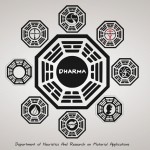 Before I go to sleep at night, sometimes I ask the universe a question about my destiny. The answer, as bizarre as it may seem, usually comes in the form of a song that wakes me up on my clock radio the next morning. While I haven’t done this in awhile, last night I once again had the urge. I asked the universe (God, the light, soul guides, my future self, whatever you wanna call it) what is going to happen on December 22, 2012—the day after the Mayan calendar abruptly ends. The answer I received really surprised me.
Before I go to sleep at night, sometimes I ask the universe a question about my destiny. The answer, as bizarre as it may seem, usually comes in the form of a song that wakes me up on my clock radio the next morning. While I haven’t done this in awhile, last night I once again had the urge. I asked the universe (God, the light, soul guides, my future self, whatever you wanna call it) what is going to happen on December 22, 2012—the day after the Mayan calendar abruptly ends. The answer I received really surprised me.
 As mentioned in last quarter’s column, there have been a lot of “life-as-illusion” themed movies coming out lately. While I suspect that the success of Avatar and Lost are partly responsible for this trend, I think people’s fascination with 2012, drastic world changes, and a surge in our search for meaning are also fueling the recent string of films about alternate realities and simulated worlds. When airplanes are crashing into buildings, cities are submerged underwater, the Middle East is revolting, and the world economy is collapsing, real life almost seems more fantastical than our dreams. Jon Stewart summed it up perfectly at the 2008 Academy Awards: “Normally, when you see a black man or a woman president, an asteroid is about to hit the Statue of Liberty.” Yes, we are now officially living in the future, and we all know what kind of stuff happens in the future—exactly the kind of stuff that’s happening right now. But at least, thanks to Hollywood, we’ve been warned. And Hollywood’s heads up may even go much deeper than prophesies of events to come. They may help explain the reality we all find ourselves in.
As mentioned in last quarter’s column, there have been a lot of “life-as-illusion” themed movies coming out lately. While I suspect that the success of Avatar and Lost are partly responsible for this trend, I think people’s fascination with 2012, drastic world changes, and a surge in our search for meaning are also fueling the recent string of films about alternate realities and simulated worlds. When airplanes are crashing into buildings, cities are submerged underwater, the Middle East is revolting, and the world economy is collapsing, real life almost seems more fantastical than our dreams. Jon Stewart summed it up perfectly at the 2008 Academy Awards: “Normally, when you see a black man or a woman president, an asteroid is about to hit the Statue of Liberty.” Yes, we are now officially living in the future, and we all know what kind of stuff happens in the future—exactly the kind of stuff that’s happening right now. But at least, thanks to Hollywood, we’ve been warned. And Hollywood’s heads up may even go much deeper than prophesies of events to come. They may help explain the reality we all find ourselves in.





 Before I go to sleep at night, sometimes I ask the universe a question about my destiny. The answer, as bizarre as it may seem, usually comes in the form of a song that wakes me up on my clock radio the next morning. While I haven’t done this in awhile, last night I once again had the urge. I asked the universe (God, the light, soul guides, my future self, whatever you wanna call it) what is going to happen on December 22, 2012—the day after the Mayan calendar abruptly ends. The answer I received really surprised me.
Before I go to sleep at night, sometimes I ask the universe a question about my destiny. The answer, as bizarre as it may seem, usually comes in the form of a song that wakes me up on my clock radio the next morning. While I haven’t done this in awhile, last night I once again had the urge. I asked the universe (God, the light, soul guides, my future self, whatever you wanna call it) what is going to happen on December 22, 2012—the day after the Mayan calendar abruptly ends. The answer I received really surprised me.
